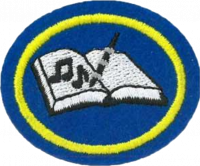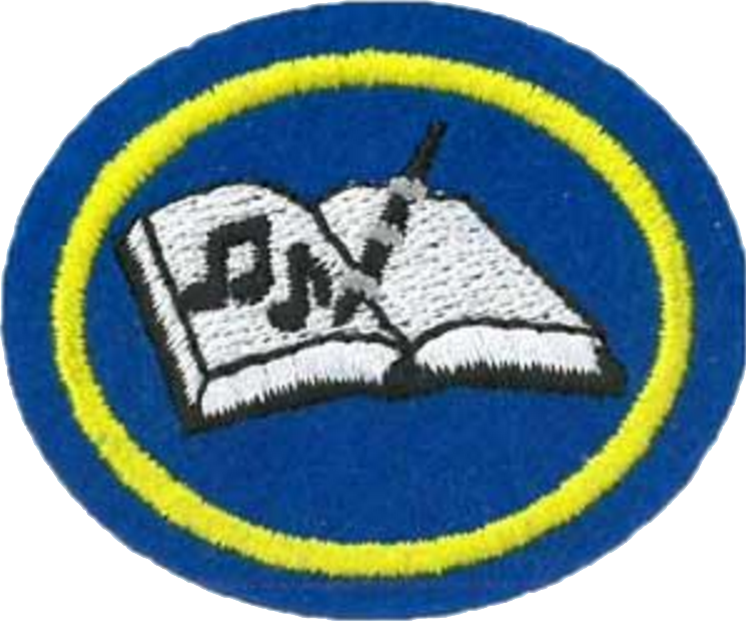Difference between revisions of "AY Honors/Hymns/Answer Key"
Pathfinders (talk | contribs) m |
Pathfinders (talk | contribs) m |
||
| Line 12: | Line 12: | ||
*2. a song of praise or joy | *2. a song of praise or joy | ||
*3. something resembling a hymn” | *3. something resembling a hymn” | ||
| − | + | The difference between a hymn and a praise song is two-fold: | |
| − | + | 1) praise songs are less formal in their "lyric structure," while hymns will seem more like a poem set to music. | |
| − | + | 2) praise songs are horizontal, talking about the personal experience while hymns are typically vertical, talking about God. | |
The original greek for "hymn" means "praise song (to God)" | The original greek for "hymn" means "praise song (to God)" | ||
Revision as of 02:00, 4 January 2024
1
This requirement should be met by looking up the word "hymn" in a dictionary (whether online or in print), and then noting which dictionary was used.
- 1.a. a song of praise to God
- 1.b. a metrical composition adapted for singing in a religious service
- 2. a song of praise or joy
- 3. something resembling a hymn”
The difference between a hymn and a praise song is two-fold: 1) praise songs are less formal in their "lyric structure," while hymns will seem more like a poem set to music. 2) praise songs are horizontal, talking about the personal experience while hymns are typically vertical, talking about God. The original greek for "hymn" means "praise song (to God)"
www.merriam-webster.com
2
Read each verse as well as those around it to discover the context. Finding the context means that you try to learn when the passage was written, by whom, and under what circumstances. A Bible Commentary may also be helpful.
2a
“Hear, O kings! Give ear, O princes!
I, even I, will sing to the Lord;
I will sing praise to the Lord God of Israel.
2b
Praise the Lord with the harp; Make melody to Him with an instrument of ten strings.
2c
He has put a new song in my mouth—
Praise to our God; Many will see it and fear,
And will trust in the Lord.
2d
Sing aloud to God our strength;
Make a joyful shout to the God of Jacob. Raise a song and strike the timbrel,
The pleasant harp with the lute.
2e
Oh come, let us sing to the Lord!
Let us shout joyfully to the Rock of our salvation. Let us come before His presence with thanksgiving;
Let us shout joyfully to Him with psalms.
2f
Shout joyfully to the Lord, all the earth;
Break forth in song, rejoice, and sing praises. Sing to the Lord with the harp, With the harp and the sound of a psalm, With trumpets and the sound of a horn;
Shout joyfully before the Lord, the King.
2g
I will sing of mercy and justice; To You, O Lord, I will sing praises.
2h
Now at the dedication of the wall of Jerusalem they sought out the Levites in all their places, to bring them to Jerusalem to celebrate the dedication with gladness, both with thanksgivings and singing, with cymbals and stringed instruments and harps.
2i
speaking to one another in psalms and hymns and spiritual songs, singing and making melody in your heart to the Lord,
2j
Let the word of Christ dwell in you richly in all wisdom, teaching and admonishing one another in psalms and hymns and spiritual songs, singing with grace in your hearts to the Lord.
3
This activity may be done as a group.
When setting a passage of text to music, it is a good idea to start with the meter - that is, count the number of syllables in each phrase. Then divide the passage into segments to create a structure where the numbers repeat (if possible), and where the divisions between segments are in logical places. If you are having difficulty with this, try a different translation of the passage - it will likely have a different meter that may lend itself to this process a bit easier.
A song's meter is usually expressed as a list of numbers. For instance, Give Me Oil In My Lamp has the meter 10, 8, 10, 9, because there are 10 syllables in the first and third stanzas, 8 in the second, and 9 in the fourth.
Once you have the meter, look in the metrical index of tunes in a hymnal and see if you can find something close to what you came up with. If you find something, you should notice that the tune to that song will work with the passage you are working with.
If you are especially creative, you can make your own melody instead of using an existing one. Starting with the meter is still a good idea even in this case, and you may find it effective to come up with a rhythm next, and finally, with the notes.
4
4a
ex: 381 Holy Sabbath Day of Rest
4b
ex: 201 Christ is Coming
4c
ex: 127 Infant Holy, Infant Lowly
4d
ex: 073 Holy Holy Holy
4e
ex: 643 Father, Who on Us Do Shower
4f
ex: 171 Thine is the Glory
5
- Sabbath School
- Camping trips
- Vespers
- Graduation
- Funerals
- Weddings
6
Some indexes you might find can include the following:
- Topical index: can search for hymns to use by topic
- Scriptural index of worship aids (and Scriptural allusions in hymns and indexed by hymn number): can search for hymns to use by Bible verse
- Hymns suitable for sentences and responses: hymns that can be used in part in the worship service beyond being sung. i.e. benedictions, call to worship, before offering, etc.
- Hymns suitable for young worshipers: a list of hymns for Pathfinders, AY, or Sabbath School
- Authors, translators, and sources of texts: a way to find a hymn based on the origin of the lyrics.
- Composers, arrangers and sources of tunes: a way to find a hymn based on the origin of the music (tunes).
- Alphabetical index of tunes: A way to find a hymn when you already know the name of the hymn tune.
- Metrical index of tunes: A way to find hymns with the same meter (would allow the lyrics to be used interchangeably with the tune)
- Index of titles and first lines: A way to find the location of a hymn when you already know the hymn title or the first line.
7
8
9
SDA hymn writers: Edison White, Franklin E. Belden, D.S. Hakes (music), Joseph Harker, Edwin Barnes, Oliver Beltz, Wayne Hooper, Carol Mayes
Non-SDA hymn writers: Isaac Watts, Charles Wesley, James Montgomery, William Cowper, Lowell Mason, William Batchelder Bradbury, John Bacchus Dykes, Fanny Crosby, Ira D. Sankey, George Stebbins, William J. Kirkpatrick, James McGranahan, Robert Lory, George W. Doan, Philip P. Bliss, George F. Root, Fred Green, Brian Wren, Fred Kaan, Timothy Dudley-Smith
10
11


